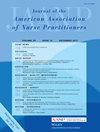对阿片类药物使用障碍人群进行研究的执业护士的伦理考虑。
IF 1.2
4区 医学
Journal of the American Association of Nurse Practitioners
Pub Date : 2024-04-24
DOI:10.1097/JXX.0000000000001020
引用次数: 0
摘要
摘要阿片类药物使用障碍(OUD)患者是一个弱势群体,他们在参与研究时面临着独特的伤害风险。尽管针对弱势群体开展伦理研究的对话、成文的研究伦理守则和机构审查委员会的监督由来已久,但对患有阿片类药物滥用障碍的研究人群的保护却鲜有提及。使用 OUD 参与者开展研究的执业护士,尤其是在招募自己的患者(即双重角色)时,必须意识到保护患者和参与者免受更多风险所需的独特伦理考虑因素。本文探讨了可能影响参与者招募和同意的脆弱性和影响因素、参与者参与研究的风险和收益分配失衡,以及导致脆弱性的胁迫、不当影响和不合理压力等问题。文章提出了减少阿片类药物紊乱研究参与者这一弱势群体所受影响风险的策略。本文旨在提高人们对使用阿片类药物滥用症患者作为研究参与者的独特潜在伤害风险的认识,并探讨最大限度地降低对这一弱势群体施加各种程度影响的潜在风险的策略。本文章由计算机程序翻译,如有差异,请以英文原文为准。
Ethical considerations for nurse practitioners conducting research in populations with opioid use disorder.
ABSTRACT
People with opioid use disorder (OUD) are a vulnerable population who face unique risks of harm when participating in research. Despite a long-standing dialogue, written research codes of ethics, and institutional review board oversight for the conduct of ethical research in vulnerable populations, protections for study populations with OUD is rarely mentioned. Nurse practitioners who conduct research using participants with OUD, especially when recruiting their own patients (i.e., dual role), must be aware of the unique ethical considerations necessary to protect their patients and participants from increased risks. This article explores vulnerabilities and influences that can affect participant recruitment and consent, imbalances in the distribution of risk and benefits to participants participating in research, and the concerns of coercions, undue influence, and unjustifiable pressure contributing to vulnerabilities. Strategies to reduce the risks of influences that are of concern in the vulnerable population of research participants with opioid disorder are suggested. The goal of this article was to raise awareness of the unique potential risks of harm when using people with OUD as research participants and to explore strategies to minimize potential risks of various levels of influence in this vulnerable population.
求助全文
通过发布文献求助,成功后即可免费获取论文全文。
去求助
来源期刊

Journal of the American Association of Nurse Practitioners
Nursing-General Nursing
自引率
16.70%
发文量
172
期刊介绍:
The Journal of the American Association of Nurse Practitioners (JAANP) is a monthly peer-reviewed professional journal that serves as the official publication of the American Association of Nurse Practitioners.
Published since 1989, the JAANP provides a strong clinical focus with articles related to primary, secondary, and tertiary care, nurse practitioner education, health policy, ethics and ethical issues, and health care delivery. The journal publishes original research, integrative/comprehensive reviews, case studies, a variety of topics in clinical practice, and theory-based articles related to patient and professional education. Although the majority of nurse practitioners function in primary care, there is an increasing focus on the provision of care across all types of systems from acute to long-term care settings.
 求助内容:
求助内容: 应助结果提醒方式:
应助结果提醒方式:


